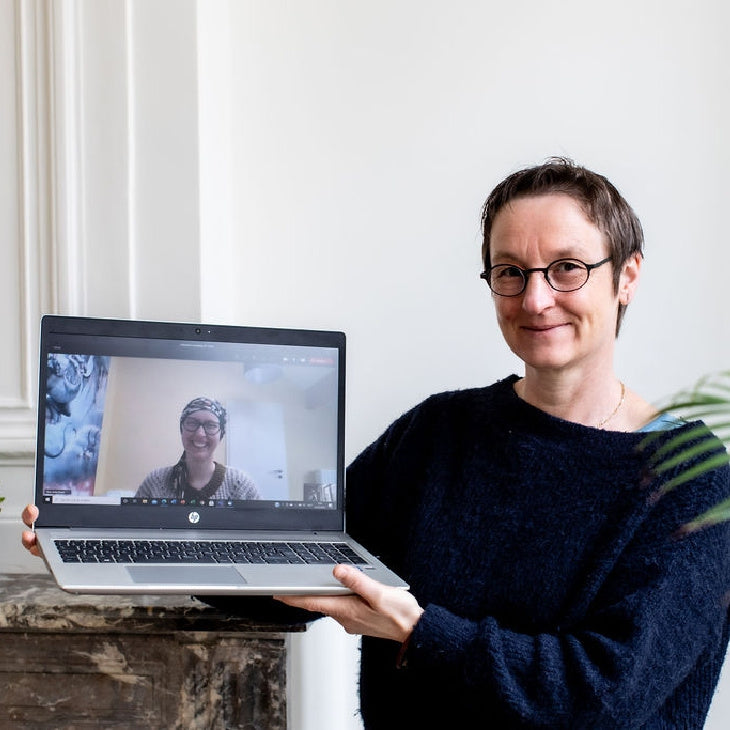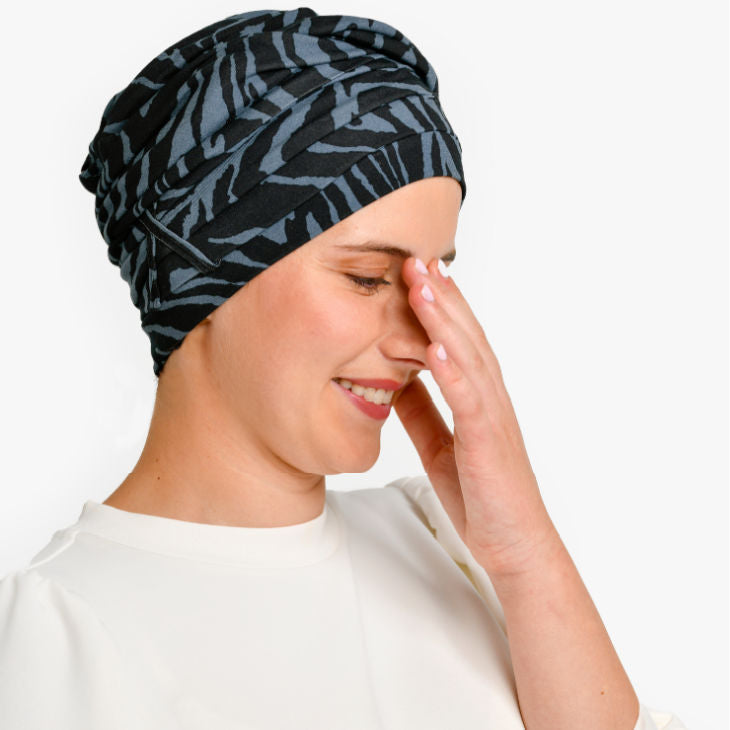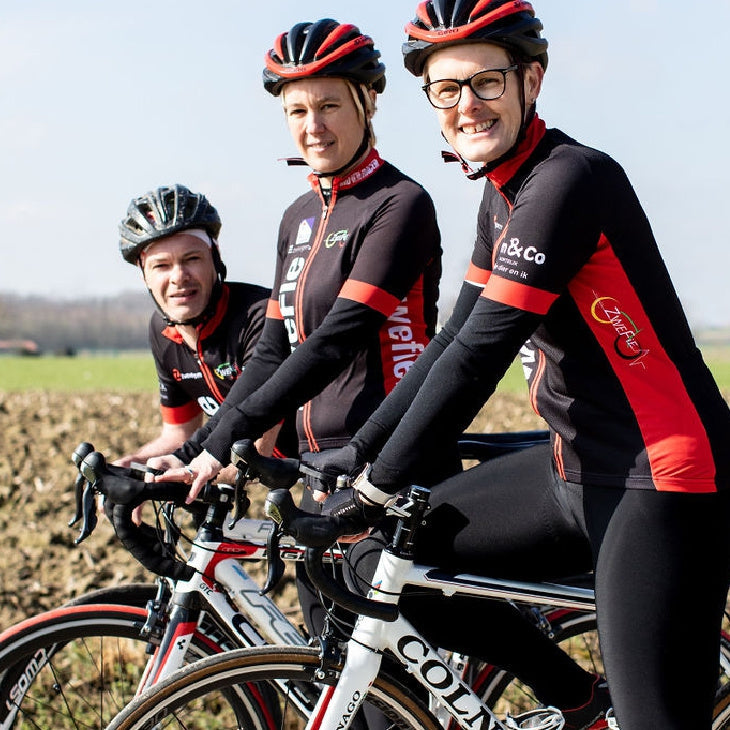Ann-Sofie Voet lives in Wallonia and receives her cancer treatment in the Grand Duchy of Luxembourg. Medically, her treatment has been excellent, but many of her other questions went unanswered. “Luckily, through a roundabout way, I found Els from Het Majin Huis, an open house in Ghent for people with cancer.”
Last summer, Ann-Sofie received devastating news. “I had just had surgery for an in-situ tumor in my breast. That type of cancer is usually easy to treat: you remove it, and the treatment is done. But the biopsy revealed that I also had triple-negative breast cancer, a more aggressive type that grows and spreads quickly.” It meant a completely different story, with a far more intense treatment plan. “When I heard that, it felt like the ceiling crashed down.” Ann-Sofie lives in Messancy, in the province of Luxembourg, but works across the border. “For my cancer treatment, I went to Luxembourg, which for me is actually closer than the nearest well-equipped Belgian hospital.”
Support in your native language after a cancer diagnosis
Medically, the treatment in Luxembourg was excellent, Ann-Sofie says, but she was left with many unanswered questions. “When I asked how to adjust my diet, my oncologist simply said I could eat anything. I also had questions about entering menopause due to chemo and about my physical recovery, but I felt those were never really addressed.” Through others, Ann-Sofie found La Vie-là in Ottignies, a support center for people with cancer. “But I quickly realized I wanted help in my native language. You express yourself more precisely and naturally, especially when you’re tired.” Through La Vie-là, she eventually connected with Els Van den Driessche from Het Majin Huis* in Ghent.

Slowing down the rollercoaster of treatment
When Ann-Sofie met Els earlier this year, she was feeling low. “I needed a reference point, someone to confirm that it was normal to feel this way.” Coach Els immediately reassured her: “I normalized the situation for Ann-Sofie. I told her what she was feeling was completely normal and that it would improve after a few weeks.” The two spoke online every week. Els: “We grouped Ann-Sofie’s questions and found tailored help for each one. For example, Ann-Sofie wanted physical support, so I referred her to an oncology physiotherapist who could guide her remotely. When we provide practical answers, the tension eases. We try to slow down the emotional and mental rollercoaster that cancer brings, so people can regain solid ground.”
Anti-worry tricks
Els, a psychotherapist, also helped Ann-Sofie tackle her tendency to overthink. “I taught her a technique from rational emotive therapy that helps her view her thoughts differently.” As a physical reminder to stop spiraling, Ann-Sofie wears an elastic band around her wrist. “That was Els’s idea. When my thoughts start to race, I give it a little snap to bring myself back. Even my husband does it sometimes when he catches me lost in thought,” she laughs. Els also gave her relaxation exercises. “They calm me down when I’m feeling drained in the afternoon but too restless to sleep.”
A knowledgeable sounding board
How does online coaching work in practice? Ann-Sofie is just happy there’s a solution, even remotely. “Honestly, at times it was better not to have to travel.” She’s deeply grateful for the listening ear she found with Els. “Don’t get me wrong—my family and friends have been incredible. I have friends who drive three hours to deliver a ‘survival package,’ wave through the window, and then drive three hours back. But I also need a sounding board with expertise. Someone who can say, ‘This is normal, this is what you’ll need to work on, and here’s what we can do.’ That truly reassures me.”
Interview: Spring 2021

Het Majin Huis: mental, social, and physical support for people with cancer
“While hospitals focus on the ‘cure,’ we take care of the ‘care,’” explains coordinator Els Van den Driessche of Het Majin Huis in Ghent. “Everything we offer—Tai Chi, career coaching, yoga, walking groups, cooking workshops, and lectures—is tailored to the needs of cancer patients.” More info at www.majinhuis.org.
Curious about even more stories like this interview with Ann-Sofie? You can read them all in our Personal Stories section >>











Leave a comment
All comments are moderated before being published.
This site is protected by hCaptcha and the hCaptcha Privacy Policy and Terms of Service apply.